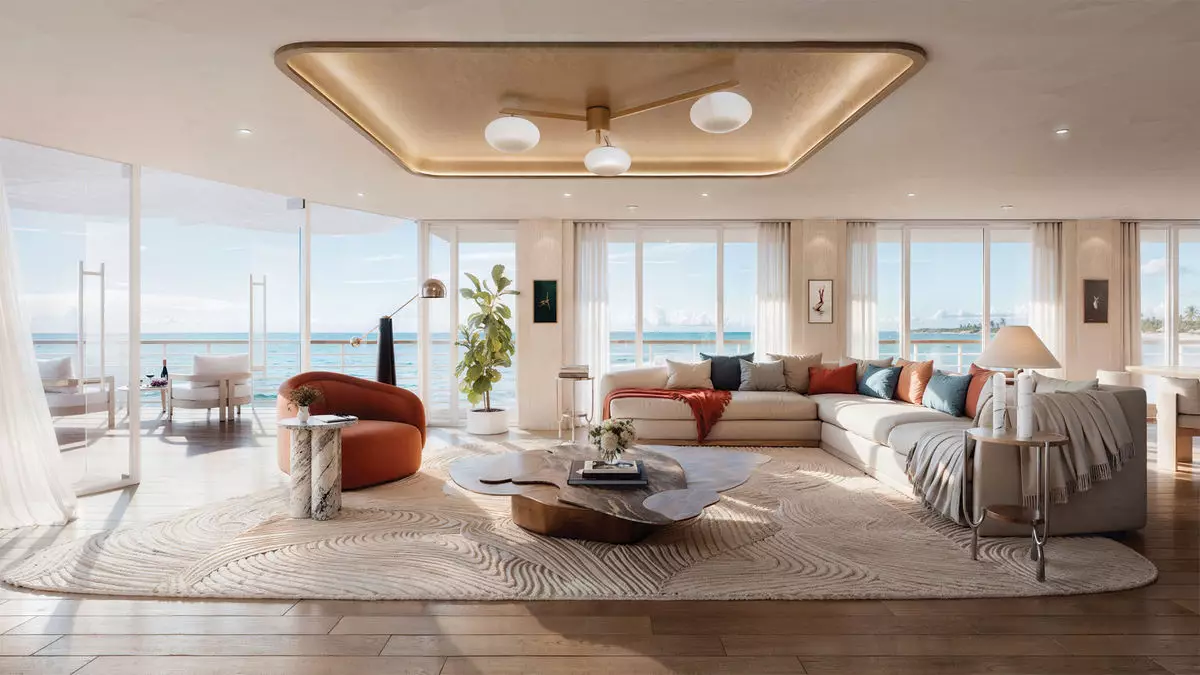The cruise industry is evolving, and a fascinating new segment is beginning to capture the public’s imagination: residential cruising. The concept of purchasing a cabin and living aboard a cruise ship year-round offers a novel solution to those seeking lifestyle changes or adventure, particularly after the pandemic encouraged many to embrace remote work. As multiple residential cruise companies emerge, there is an optimistic air about this niche market, despite caution from some industry professionals.
Residential cruising appeals to affluent clients craving change. With advances in high-speed Wi-Fi and digital communication, living at sea has become more feasible than ever. This trend is reinforced by longer cruise itineraries, where prolonged immersion in a seafaring lifestyle is possible. The founders of various residential cruise lines see these factors as key to their potential success. Yet, behind this veil of opportunity lies the skepticism of some travel advisors who recall the troubled beginnings of several previous ventures.
The Players in the Market
The most recognized name in this domain is The World, a luxurious condominium ship that has been offering residences at sea for over 20 years. Newer entrants continue to shape this market, like Crescent Seas, spearheaded by former Norwegian Cruise Line chairman Russell Galbut. Crescent Seas aims to start its operation in December 2026 aboard a refurbished Seven Seas Navigator, a former Regent Seven Seas Cruises vessel. With plans for a robust expansion involving the acquisition of an additional fleet, Crescent Seas is certainly gaining attention.
Meanwhile, Villa Vie, utilizing a former Fred. Olsen ship, offers both ownership and rental options, making it more versatile for interested clients. The competitive landscape of residential cruising is not without pitfalls, as evidenced by ventures like Life at Sea Cruises, which faced significant operational hurdles, canceling a voyage mere weeks before departure. These setbacks have created a nuanced perspective within the industry, prompting travel advisors to question the viability of investing in such ventures.
Cautious Optimism Among Travel Advisors
High-profile yet troublesome launches have fostered skepticism among travel advisors. Carlos Edery, who leads Luxury Cruise Connections, voiced his concern about recommending investments in residential cruising based on the inconsistencies seen in recent launches. Travel advisors, traditionally focused on more stable travel options, may find this sector challenging, requiring specialized knowledge and thorough research before guiding clients.
Despite this caution, the potential commissions from sales and reservations might persuade some travel professionals to engage with these residential cruise lines. Galbut has actively involved travel advisors in Crescent Seas’ sales strategies—allowing them to earn commissions not just from selling residences but also when short-term clients book voyages on the ships. This incentive structure could bridge the gap between real estate and travel advisor roles, making it an intriguing proposition.
Challenges and Future Prospects
While the allure of sailing the world while living in luxury is tempting, the execution presents significant hurdles. The case of Villa Vie reflects this reality. Mikael Petterson, its founder, recently acknowledged the difficulties surrounding the recent launch of his ship, which was delayed for several months due to regulatory inspections. Such obstacles reveal the intricacies involved in getting residential cruise lines up and running smoothly.
Further complicating the landscape is the uncertainty surrounding other projects within the industry. For instance, a venture initiated by Crystal Cruises, which sought to offer onboard residences, fell flat before the vessel could even be constructed. These cautionary tales add layers of complexity that prospective residents must consider before jumping into this uncharted territory.
Despite the rocky history of some of these companies, industry professionals like Dennis Nienkerk maintain a healthy sense of interest. Nienkerk has witnessed a burgeoning interest among high-net-worth individuals in permanent ocean living, citing the growing appeal of world cruises. In the face of challenges, he expresses enthusiasm for the potential that a ship like the Crescent Seas Navigator holds, indicating that there may be a bright future for residential cruising.
The Future of Living Afloat
Looking forward, the integration of modern technology and shifting work patterns has positioned residential cruising as an appealing lifestyle choice. With the allure of long vacations and the possibility of permanent residence at sea, the concept could redefine how we perceive travel and living arrangements. The desire for freedom, coupled with advancements that accommodate this lifestyle, creates an enticing scenario for those restless souls longing for adventure beyond shorelines.
As this segment grows, it necessitates careful navigation to thrive sustainably. While there are inherent risks in this innovative domain of travel, the potential rewards could reshape our conception of life on the ocean. In the modern world, where remote work has become more than a fleeting trend, living at sea could become a compelling narrative experienced by a select few. The sea, after all, has a way of calling to us, and perhaps, it’s time to answer.


Leave a Reply